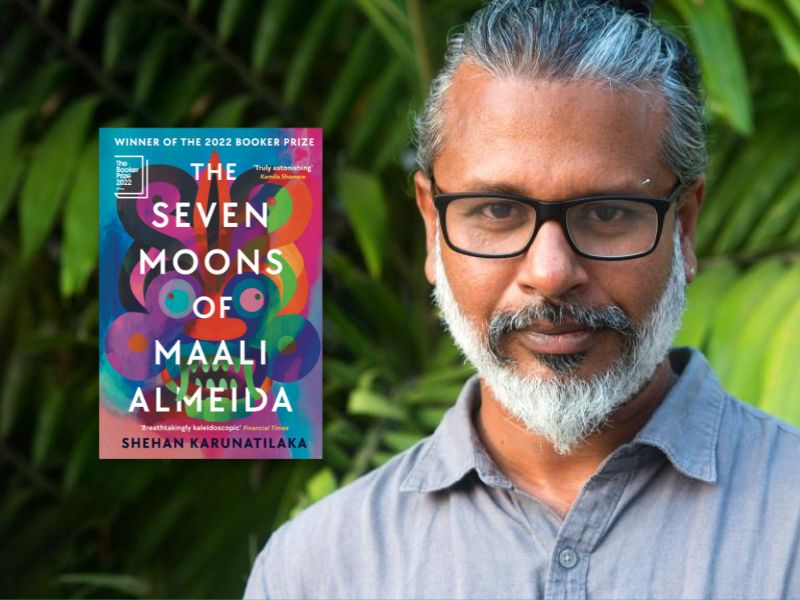‘Laughter is our coping mechanism’ – Shehan Karunatilaka on writing brutal tales with a comic twist
The Seven Moons of Maali Almeida tells the story of Maali Almeida, a war photographer who has woken up dead in what seems to be a celestial visa office. He has ‘seven moons’ to try and solve the mystery of his death and to help unveil a cache of photos that will rock war-torn Sri Lanka.
We share a sneak peek of author Shehan Karunatilaka’s life and work, ahead of his appearance at Byron Theatre next Tuesday 23 May.
Regarded as one of Sri Lanka’s most brilliant minds, Shehan Karunatilaka lifts the lid on his country’s dark and brutal past with his Booker Prize-winning novel The Seven Moons of Maali Almeida.
Part murder mystery, part political satire, part love story set amidst Sri Lanka’s civil war in the 90s, it follows a week in the afterlife of Maali, a gay atheist photojournalist who has seven moons to uncover the truth behind his death whilst reckoning with his past exploits and the death squads he was hired to expose. What unfolds is a dark and fearless yet hilarious trip through the underworld.
This Q&A extract from The Booker Prize reveals a taste of what to expect when Shehan takes to the stage at Byron Theatre next week.
For those who might not be very familiar with Sri Lanka’s civil war, what made you decide to set the book in 1989? What’s the significance of that year and what are the parallels between Sri Lanka then and now?
1989 was the darkest year in my memory, where there was an ethnic war, a Marxist uprising, a foreign military presence and state counter-terror squads. It was a time of assassinations, disappearances, bombs and corpses. But by the end of the 1990s, most of the antagonists were dead, so I felt safer writing about these ghosts, rather than those closer to the present.
I’ve no doubt many novels will be penned about Sri Lanka’s protests, petrol queues and fleeing Presidents. But even though there have been scattered incidents of violence, today’s economic hardship cannot be compared to the terror of 1989 or the horror of the 1983 anti-Tamil pogroms.
We all pray it stays that way.
Although set against a backdrop of violence, the book – like your first novel, Chinaman – is very funny. The Booker judges described it as being ‘angrily comic’. Is that the tone you were aiming for and, if so, why?
Despite having a grim history and a troubled present, Sri Lanka is not a dour or depressing place. We specialise in gallows humour and make jokes in the face of our crises. Just look at the zany footage of the July 9 presidential pool party and the many memes surrounding the Aragalaya.
Laughter is clearly our coping mechanism. In Chinaman, I used the archetype of the drunk uncle, and for Seven Moons it was the closet queen. Both characters are known for a dark and cruel sense of what’s funny.
Do you ever imagine your own afterlife? If so, how does it compare to the one you’ve invented here?
In the course of researching this, I didn’t encounter any ghosts or have any convincing epiphanies on the hereafter. But I’m not sure if any of the great ghosthunters or famous spiritualists have either. Who’s to say my version of a disorganised bureaucratic afterlife with an absent God isn’t the correct one?
—
Join Shehan Karunatilaka in conversation with Paul Barclay, 6pm Tuesday 23 May at Byron Theatre. Bookings essential via Byron Theatre.
Interview originally published at thebookerprizes.com, where you can read a range of features about books from the Booker Prizes library and interviews with Booker Prizes authors.

